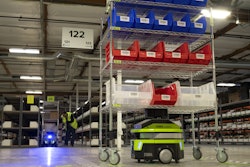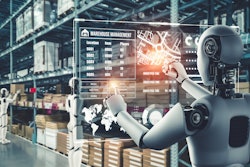
Today’s supply chains are more interconnected and complex than ever before. Companies often turn to artificial intelligence (AI) for improved visibility, efficiency, and resilience. But many organizations have discovered that their AI initiatives have not lived up to lofty expectations. The real issue isn't always the technology, but the quality and usability of the data feeding these systems.
The data challenge in modern supply chains
Supply chains generate massive volumes of data, flowing from numerous systems, formats, and partners. According to research by IBM, around 80% of supply chain data remains unstructured and therefore difficult to analyze. This fragmented approach leads to significant operational problems. Inventory data, transportation schedules, and supplier information are often stored separately, creating blind spots for decision-makers who need real-time insights to respond effectively to market changes.
A 2022 McKinsey report found that companies with advanced analytics capabilities typically achieve revenue growth approximately 7.5% higher than those without effective data management. Despite this, many supply chain teams still rely heavily on spreadsheets and manual data reconciliation, losing valuable time they could otherwise dedicate to strategic initiatives. Onboarding new suppliers or logistics partners, traditionally a painstaking process, can take weeks or even months due to complex data requirements and technical incompatibilities causing all kinds of business difficulties.
The first-mile data problem
One of the biggest obstacles facing supply chains today is what's often called the "first-mile data problem." This refers to the difficulty of capturing and standardizing data when it first enters an organization. Every interaction with external partners such as invoices, purchase orders, shipment documents, or inventory updates etc. introduces data into the company. If this initial step is error-prone or inefficient, it impacts every subsequent process and undermines the reliability of the entire supply chain.
Adding complexity to this challenge is the diversity of external partner systems. Each partner might use different software, file formats, and data standards, requiring manual intervention to standardize and integrate. As supply chains expand globally, these variations multiply, making manual management increasingly difficult and unsustainable.
Real-world solutions with AI-powered data automation
Many organizations have begun turning to AI-powered data automation solutions to tackle these foundational data challenges. These technologies help streamline and standardize incoming data flows, making the whole process easier, simpler, smoother and less error-prone.
Extracting data from documents
AI-enhanced document processing now automatically extracts critical information from traditionally challenging documents such as PDFs, emails, and images. A recent study by the American Productivity & Quality Center found that companies using AI for document processing could reduce manual data entry by up to 80%, significantly improving accuracy. Automating these processes saves substantial amounts of time and reduces the risk of errors, creating a more reliable data foundation.
Enabling business users
Today's tools empower supply chain professionals to manage data integrations directly, without extensive IT involvement. This self-service capability allows quicker onboarding of new suppliers or logistics partners, dramatically reducing integration times. According to Gartner research, organizations implementing these self-service solutions have shortened partner onboarding processes from weeks to just days. Business and operational users are all quite tech savvy these days and are increasingly comfortable with taking on a more active role in data flows.
Proactive error identification
AI systems can proactively identify anomalies, inconsistencies, and inaccuracies in data flows before they escalate into major issues. These AI models continuously learn from historical data, becoming increasingly effective at spotting potential problems early enough to prevent disruptions.
Immediate action with real-time insights
Traditional batch data processing methods, often occurring overnight, are being replaced by real-time data automation. This shift enables supply chains to respond immediately to data changes or disruptions. Automated real-time responses enhance agility and reduce downtime or inefficiencies, keeping operations running smoothly.
Real-life applications and results
Companies across various industries have experienced tangible benefits:
· One global manufacturer significantly reduced the time spent on invoice processing, going from days to mere minutes, while simultaneously enhancing data accuracy. This allowed more sophisticated analytics and quicker decision-making.
· A retail distributor dramatically shortened its supplier onboarding time, enabling rapid expansion of its supplier network amid recent disruptions, enhancing overall agility and market competitiveness.
· A logistics provider improved data accuracy and timeliness, leading to better predictive capabilities for delivery schedules, fewer customer service complaints, and enhanced reliability.
Taking steps toward improved supply chain data management
Companies interested in improving their supply chain data management should consider these practical steps:
1. Identify key pain points in external data exchanges that cause delays or inaccuracies.
2. Equip teams with user-friendly, self-service tools to manage data integrations directly.
3. Start with small, specific processes that yield immediate improvements and clearly demonstrate the value of automation.
4. Plan solutions that scale effectively, supporting growth without proportional increases in costs or complexity.
Better data means better AI outcomes
Addressing fundamental data management challenges through AI-driven automation positions organizations to fully realize the potential of artificial intelligence. Companies that understand this crucial relationship between data quality and AI success will be more prepared for the uncertainties and complexities of global supply chains.
Ultimately, organizations investing thoughtfully in AI-powered data automation will enhance their responsiveness, improve operational efficiency, and build resilience in an increasingly complex and competitive business environment.



















